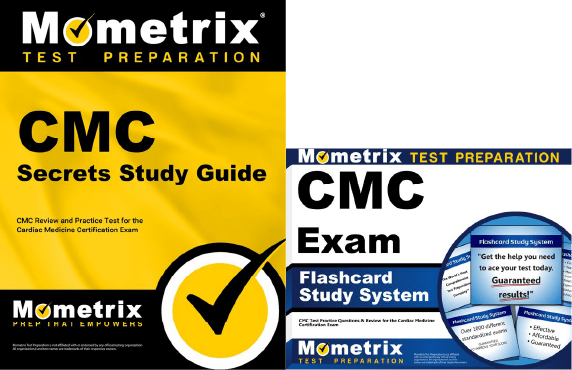If you need help studying for the Cardiac Medicine Subspecialty Certification (CMC) exam or just want some more information about what the exam is like, you’ve come to the right place.
Click below to access free CMC practice questions!
CMC Exam Eligibility
Before you can register to take the CMC certification exam, you’ll need to have a current RN or APRN license and a certification in clinical nursing.
You’ll also have to meet ONE of the two clinical practice hour requirements below:
- Two Years: You need at least 1,750 RN/APRN hours in direct care of acutely/critically ill adult patients within the last two years.
- Five Years: You need at least 2,000 RN/APRN hours in direct care of acutely/critically ill adult patients within the last five years.
If you meet the requirements, you’re set to begin the registration process!
What’s on the CMC Exam?
First, let’s talk about the questions on the exam. There are 90 multiple-choice questions total, but only 75 of the questions will count toward your score. Why is that?
The 15 unscored questions on the CMC exam are added to the exam to determine if they’re good enough questions to add to future versions.
The trick is that you won’t have any way of knowing which questions are scored and which ones are unscored. Every question will appear like a scored question throughout the test.
The time limit for the exam is 2 hours. There aren’t any scheduled breaks, but you’re free to take restroom breaks as needed.
Let’s take a closer look at the different sections of the exam.
1. Cardiovascular Conditions
23% of the exam
- Acute coronary syndrome
- Cardiac tamponade
- Cardiomyopathies
- Dysrhythmias
- Heart failure
- Hypertensive urgency or emergency
- Inflammatory and infectious conditions
- Pericardial effusion
- Pulmonary edema
- Syncope
- Valvular disorders
- Acute arterial occlusion
- Acute venous thrombosis
- Aortic aneurysm or dissection
- Hyperlipidemia
- Post-intervention vascular complication
2. Non-Cardiovascular Conditions
23% of the exam
- Endocrine
- Renal
- Respiratory
- Neurology
- Hematology
- Multisystem
- Psychosocial/behavioral
3. Therapeutic Interventions
39% of the exam
- Cardiac procedures
- Vascular interventions
- Cardiovascular pharmacology
- Electrophysiologic interventions
- Respiratory
- Renal
- Multisystem
4. Monitoring and Diagnostics
16% of the exam
- Cardiovascular
- Respiratory
How to Register
Once you’ve ensured that you meet all of the eligibility requirements, you can register for the exam!
To get started, you’ll need to submit an application via the AACN’s website. If you’re applying with a group, planning to take the paper-and-pencil version of the exam, or testing outside of the US, you’ll need to mail the following items to AACN:

AACN Certification Corporation
Attn: CMC Certification
27071 Aliso Creek Road
Aliso Viejo, CA 92656
- Completed application for the CMC exam
- Completed honor statement
- Application fee
The application fee is $235, but if you’re an AACN member, you will only have to pay $145.
CMC Exam Scores
The test is scored using the Angoff method. Here’s how it works:
The Angoff method involves a group of subject-matter experts taking an educated guess at the percentage of candidates who would correctly answer each question on the test. These estimates are then averaged to set a cut-off score, which test-takers must meet or exceed to pass.
This method aims to ensure the pass threshold reflects the level of knowledge or skill that is deemed minimally acceptable for a particular profession or field.
Retaking the Exam
If you didn’t get a passing score on your first try, that’s okay! You can retake the test up to four times per year.
In other good news, AACN offers a 30% discount for retakes!
FAQs
How many questions are on the CMC exam?
The exam contains 90 questions.
What is the time limit for the CMC exam?
The exam is timed at 2 hours.
What is the passing score for the CMC exam?
You’ll need to get a cut score of at least 50 to pass.
How much is the CMC exam?
The testing fee is $235 (AACN members pay $145).
Mometrix Test Preparation is not affiliated with or endorsed by any official testing organization. All organizational and test names are trademarks of their respective owners.



 CMC Study Guide
CMC Study Guide CMC Flashcards
CMC Flashcards